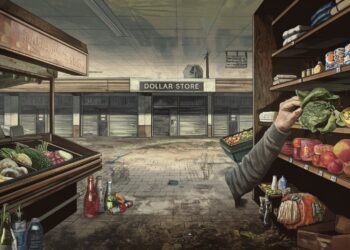The UK’s economic rollercoaster took another unexpected turn in November as inflation surged to an 8-month high of 2.6%, casting shadows over Prime Minister Keir Starmer’s ambitious growth plans. The stunning consumer price index (CPI) leap, driven by rising transport and recreation costs, has economists warning that the path to prosperity may be longer and bumpier than hoped.
Inflation Puts Brakes on Rate Cut Hopes
November’s inflation shock has all but extinguished hopes of an interest rate cut this week, with the Bank of England now expected to hold rates steady at 4.75%. The concerning inflation details, especially the 3.5% rise in core inflation excluding food and fuel, suggest that strong wage growth amid a tight labor market risks embedding higher prices.
Policymakers will be particularly wary of the 5% jump in services prices and the painful 7.6% surge in rents, which threaten to keep overall inflation elevated well into 2025. As Deloitte’s Ian Stewart warns, “The big declines in inflation are behind us. Next year inflation is likely to run closer to 3% than to its 2% target.”
Starmer: “We Need to Go Further”
For Prime Minister Starmer, who has staked his political fortunes on achieving growth that can be “felt in the pockets of working people”, the inflation rebound is an unwelcome speed bump. Speaking in Estonia, he acknowledged, “We need to go further. We’ve stabilised the economy with the budget, but that’s not the limits of my ambition.”
However, with mortgage borrowers facing the prospect of rates staying higher for longer, and Chancellor Rachel Reeves’ controversial business tax hikes risking job cuts, Starmer’s pocketbook growth may prove elusive. The delicate balance between curbing inflation and nurturing a fragile recovery has rarely been trickier for policymakers to navigate.
The Dreaded “Last Mile” of Inflation
Economists have long warned that the final stretch of taming inflation can be the most challenging, with price pressures often proving stickier than anticipated. RSM’s Thomas Pugh suggests that a February rate cut has gone from “a sure bet to a 50:50 chance” in light of the latest data.
As we enter 2025, policymakers face a high-stakes balancing act, with the specter of stagflation looming if they misstep. Reeves’ contentious tax hikes add an extra layer of uncertainty, and their impact may not be clear for some time.
The UK economy has made significant strides in recent months, but November’s inflation surge is a stark reminder that the road to sustainable growth is rarely smooth. Policymakers will need to summon all their skill and finesse to guide the nation through the challenging months ahead.
– According to a close source
With inflation proving more persistent than hoped and growth still fragile, the UK finds itself at a critical economic juncture. As Starmer strives to deliver on his promise of prosperity for all, he will need to marshal every policy tool at his disposal to keep the recovery on track. The coming months will test the mettle of the nation’s leaders as they seek to navigate an increasingly treacherous economic landscape.








